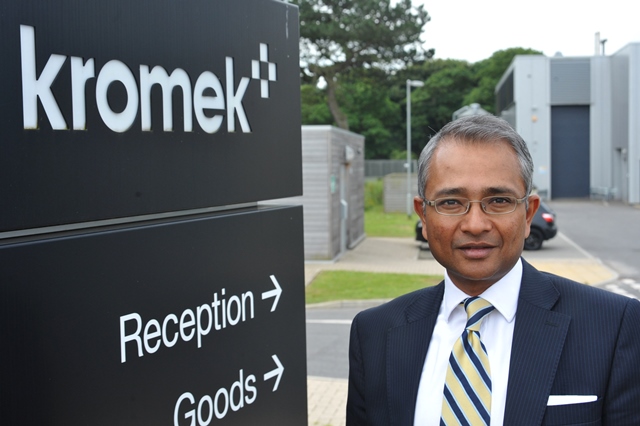Over half of Londoners unaware of emergency and terrorist attack preparations

Copyright Shutterstock
This lack of awareness could be feeding into citizens’ perceptions about London’s readiness to deal with such threats, 36% question the ability of London’s infrastructure to withstand the impact of a terrorist attack, compared to 38% who think it can.
The global research, which forms part of AECOM’s 2019 Future of Infrastructure Report, surveyed more than 10,000 people across 10 major international cities for their views on city infrastructure, priorities for improvement and ambitions for future infrastructure.
Concerned by climate change, 40% of those surveyed feel that London lags behind other cities in sustainability and more than half (57%) think the private sector should be more involved in the development of future infrastructure.
39% of those surveyed in London would be willing to pay higher taxes to help fund infrastructure improvements and 47% would be happy to share their personal data with relevant city agencies to deliver better services, although on a similar theme only a third of people are confident in the Government’s ability to protect infrastructure from a Cyber Attack.
In contrast, only 25% would be willing to pay higher fares for public transportation in the future. Indeed people in London – alongside Riyadh – show the most concern about the cost of public transport, with 38% describing it as unaffordable. Despite these concerns, of the ten cities surveyed London ranks third in terms of its citizens’ satisfaction with infrastructure, behind only Hong Kong and Singapore.
However, engagement is a key issue for Londoners with over half of respondents (55%) saying they haven’t had the chance to feedback on transport services during the past year and almost a quarter (23%) feel that city officials are not clear about the ways to submit their views on infrastructure. Some 50% of those questioned in London think that, when they are asked to feedback, it is too late in the process for their voice to be heard or have an impact.
This perceived lack of engagement, along with recent controversies surrounding some projects such as the Garden Bridge, could be informing Londoners’ dissatisfaction with infrastructure management and delivery. Fewer than one in three Londoners feel that those in power are making the right decisions about what infrastructure projects to fund, and almost half (49%) think that changes in elected officials often result in major changes to infrastructure policy. More than half of respondents in London (52%) believe that city officials take a short-term view of infrastructure planning and 59% state that large-scale transportation projects in the capital are usually delivered late.
With public transport top of Londoners’ list for infrastructure improvements, AECOM is calling on government to move major projects outside the political cycle and create the right business environment to attract private investment and get key schemes off the ground.
Colin Wood MBE, Chief Executive – Civil Infrastructure, Europe, Middle East and Africa, AECOM, said: “What’s clear from the findings of the survey is that when it comes to Londoners perception of how prepared the city is from the threat posed by Terrorism, Cyberattacks and Natural disasters they feel authorities could do better.
“Londoners care about their infrastructure and recognise the importance of building its resilience to the risks we face as a global city. They are even willing to pay higher taxes to fund infrastructure improvements. Government should be buoyed by the public support for more private sector involvement in infrastructure. London, along with the rest of the UK, has an impressive pipeline of projects, but private finance is required to fill the funding gap and secure the delivery of much-needed schemes. As London builds up to its next mayoral election, the large proportion of respondents that see too many policy shifts as a result of changes to elected officials sends a clear message about the need to de-politicise infrastructure decision-making and build certainty around project delivery.
“London’s competitive edge is built around its openness, connectivity and diverse population. Yet it will face mounting economic, environmental and social problems if its infrastructure fails to meet future demands. As London seeks to secure its place in a post-Brexit world, the role of infrastructure is more vital than ever. The city’s ambitions to remain a world leader are unequivocal and Londoners recognise the need for greater collaboration and are even willing to play their part in helping to realise them.”
Key statistics:
Resilience:
52% of Londoners say that they have not been informed of drills or exercises to help prepare their city for emergency situations.
36% question the ability of London’s infrastructure to withstand the impact of a terrorist attack.
London respondents see cyberattacks as a major threat, and 42% are not confident in their city’s ability to protect them
37% of people don’t feel confident in London’s ability to them against natural disasters
40% of London respondents believe their city lags behind other city authorities when it comes to sustainability
Londoners identify the following as the three infrastructure improvement priorities most important to them for the future: 1. Improving environmental sustainability (e.g. recycling, waste water reuse, solar power); 2. Upgrading of public transportation; and 3. Upgrading of utilities (water, power)
Among a long list of existing and emergent technologies, London residents identify (in order of priority) super-fast broadband, solar power and fast rail connections to airports as having
the biggest impact on their quality of life Infrastructure delivery:
49% of London respondents think that changes in elected city officials often result in major changes to infrastructure policy
Fewer than one in three citizens feels that those in power are making the right decisions about what infrastructure projects to fund
52% believe that city officials take a short-term view of infrastructure planning
59% state that large-scale transportation projects in London are usually delivered late
57% agree that the private sector should be more involved in infrastructure development.
Transport:
60% of Londoners are finding it increasingly stressful to travel by public transport
38% describe public transport in London as unaffordable
23% of London citizens rate the reliability of public transport in London as poor/very poor
75% believe that the state of the roads has worsened or not changed in the past 12 months
39% of London respondents would be willing to pay higher taxes to fund improvements of infrastructure overall
25% of London citizens would be willing to pay higher fares to help fund travel improvements.
Engagement:
55% of London citizens say that they have not had a chance to feedback on public transport services during the past year
46% say they have not had the opportunity to give their views on public infrastructure issues in the past 12 months
23% feel that city officials are not clear about the ways they can submit their views on infrastructure
50% of Londoners feel that when they are asked for feedback about infrastructure, it is too late in the process for their voice to be heard or have an impact
36% of respondents say that city authorities are making it easier for them to contribute through social media
47% of citizens say they are happy to share their personal data with relevant city agencies to help improve things.
The Future of Infrastructure: Voice of the People report has been produced by AECOM in collaboration with Longitude, a world-class leader in quantitative and qualitative research. The report was compiled in two ways. First, Longitude conducted an online survey of more than 10,000 people across 10 major global cities including Hong Kong (1031 respondents), Mumbai (1088), Singapore (1109), Sydney (1096), London (1118), Riyadh (980), Chicago (1014), Los Angeles (1121), New York (1128), and Toronto (1065). Respondents were not compensated for their participation and AECOM was not identified as the research sponsor. Second, the firm conducted qualitative interviews with a range of senior figures in the global civil infrastructure industry where AECOM was identified to them as the research sponsor.













